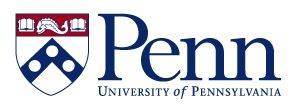A Convening of Wavemakers: Key Insights from the 2015 Leadership Exchange
In the final installment of the Economy League’s Exchange to Change series, Steve Wray reflects on the key lessons and insights that emerged from the 2015 Greater Philadelphia Leadership Exchange.

Once again at this year’s Greater Philadelphia Leadership Exchange, the Economy League assembled some of our region’s best and brightest leaders from the business, nonprofit, and public sectors to focus on big ideas and innovative solutions to move our community forward. With more than 220 participants, the 10th anniversary Leadership Exchange featured its largest and most diverse group to date.
The New Solution Economy
This year’s Exchange kicked off with keynote remarks from Bill Eggers, a noted public policy and leadership expert at Deloitte, who explained how corporations and nonprofits are revolutionizing how the world approaches thorny social challenges and filling a gap between government activity and citizen expectations. Eggers gave the example of access to safe water, sanitation, and hygiene as one of the world’s most “wicked problems” and how, recognizing both the moral imperative and economic necessity to address these challenges, businesses such as Nestlé and Coca-Cola have invested in a range of projects and initiatives to improve global water access and quality. Eggers noted that these “wavemakers” are multi-rational and multi-national – they see societal problems not as just charitable or jurisdictional matters but as scalable market opportunities.
Maintaining collaboration and communication among all of the players in this new solution-centric economy necessitates what Eggers calls “ecosystem integrators,” organizations or individuals that create a space for aligned action by others. The Global Alliance for Vaccines and Immunizations, for example, has provided a space for academics, pharmaceutical companies, funders, and the international aid community to meet and reshape the vaccine market.
Social Innovation in Greater Philadelphia
Elements of Eggers’ new solution economy framework were reinforced as we heard from a panel of cross-sector wavemakers making change in Greater Philadelphia. Campbell Soup Company executive Kim Fortunato explained how the Camden community has been a co-creator in the success of Campbell’s Healthy Communities Program, a 10-year, $10 million initiative to reduce childhood obesity and hunger by 50%. On the other side of the Delaware River, The Lenfest Foundation is investing in programs that improve the educational and career outcomes of low-income, at-risk youth in Philadelphia. Lenfest Chair Dr. Keith Leaphart challenged us to think about creative ways to harness the untapped talent reserves and intellectual capital in these and other marginalized populations, including formerly incarcerated individuals. Philadelphia Deputy Mayor for Economic Development Alan Greenberger, who spearheaded the rewriting of the City’s massive and outdated zoning code along with a new comprehensive plan, emphasized the importance of patience when it comes to enacting systemic change, noting that “most good things take longer than a political cycle to be accomplished.”
Dr. Stephen Klasko, a relatively new leader on the Philadelphia scene, electrified Leadership Exchange participants during his enigmatically titled presentation, “I Messed Up Healthcare in America (Put Your Name Here).” Contrary to this claim, Dr. Klasko, President & CEO of Thomas Jefferson University and Jefferson Health, is helping to drive much-needed changes in health care training, technology, and delivery mechanisms. Klasko observed that, over the last 40 years, the most vexing and persistent questions facing the health care industry in the U.S. have remained relatively unchanged – How can we control spiraling costs? How can we move away from a fee-for-service payment model? How can we measure outcomes? In an effort to address these questions and move toward a more efficient, equitable, and inexpensive system, Jefferson has embraced a new health care model that uses team-based approaches and holistic curricula and admissions criteria to foster patient-centered care and improve outcomes. By leveraging mergers and technological innovations such as virtual rounds, Jefferson has embraced a Netflix-style business model that brings health care directly to its patients while much of the industry still operates in a Blockbuster paradigm.
We heard more fresh perspectives from newer blood in our region’s civic landscape during a panel discussion with emerging leaders in the technology, nonprofit, and education sectors. Morgan Berman, Anuj Gupta, and Paymon Rouhanifard each shared their personal stories, what inspired them to pursue their current career paths, and what they believe are the most critical issues facing Greater Philadelphia today.
A Legacy of Getting Big Things Done
Throughout this year’s Exchange, we heard both broadly ambitious and narrowly targeted efforts to address some of our society’s most intractable problems. In its capacity as a community philanthropy, The Philadelphia Foundation is uniquely positioned to support these efforts and provide the continuity of civic leadership that is needed to catalyze lasting change.
Our closing speaker Pedro Ramos, the newly appointed head of the foundation, reminded us that our region has a long history of accomplishing big things, citing the construction of the Pennsylvania Convention Center, the raising of Philadelphia’s building cap, and the city’s recovery and emergence from fiscal crisis. According to Ramos, in order to meet the most pressing challenges facing our region in the 21st century, we will need to tackle large, unstructured problems like low educational outcomes through smaller, more achievable campaigns such as universal pre-k. Ramos indicated that, as the foundation begins its next chapter, we should expect it to take a larger and more active role in Greater Philadelphia’s civic leadership landscape.
The first decade of the Leadership Exchange has yielded some important lessons and successes for our region. As I look ahead to the next ten years, I’m confident that the established and emerging leaders in our community are well positioned to address the big challenges, implement the creative solutions, and provide the sustained leadership needed to help our region grow and thrive.
Explore the full Exchange to Change series
Apply for the 2016 Greater Philadelphia Leadership Exchange >>

The Exchange to Change series is made possible through the generous support of the University of Pennsylvania